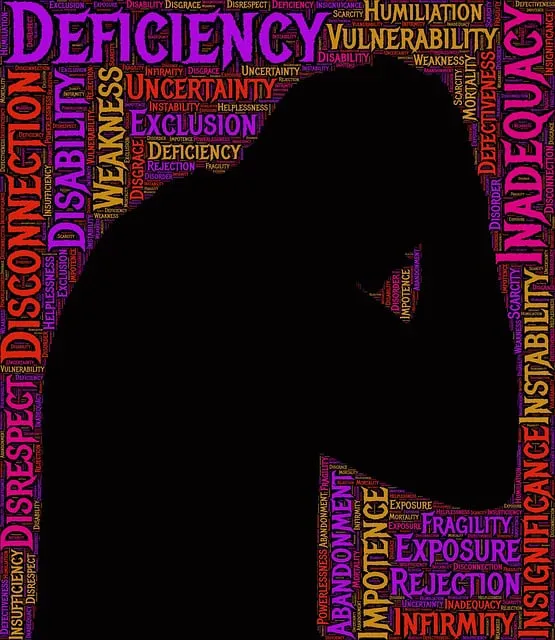Trauma, a common mental health issue stemming from events like abuse or natural disasters, can be managed through Kaiser's comprehensive resources. They offer mood management, conflict resolution, and stress reduction techniques, emphasizing both physical and mental well-being. By combining individual therapy with group support, including CBT and EMDR practices, Kaiser aids in anxiety relief, emotional regulation, and fostering resilience. Recognizing the importance of reaching out for help, educating oneself about resources like Kaiser, and finding culturally competent providers are key steps towards recovery, enhanced by self-care practices.
Trauma can profoundly impact mental health, affecting individuals across diverse demographics. In response to this growing need, organizations like Kaiser have pioneered comprehensive trauma support services. This article delves into understanding trauma’s effects on mental well-being and Kaiser’s innovative approach to addressing it. We also outline the golden steps for accessing effective mental health help, drawing insights from Kaiser’s model, offering practical guidance for those seeking support. Discover how these strategies can empower individuals in their journey towards healing.
- Understanding Trauma and Its Impact on Mental Health
- Exploring Kaiser's Approach to Providing Trauma Support Services
- Golden Steps to Accessing Effective Mental Health Help
Understanding Trauma and Its Impact on Mental Health

Trauma is a profound and complex experience that can have lasting effects on an individual’s mental health. It’s important to understand that trauma isn’t just about a single event; it encompasses a range of experiences, from abuse and violence to natural disasters and war. These events can disrupt a person’s sense of safety, trust, and control, leading to various mental health challenges. According to the Kaiser Family Foundation, many individuals struggle with managing their mental health after traumatic incidents, highlighting the critical need for effective support systems.
Trauma can manifest in numerous ways, affecting mood, behavior, and overall well-being. Some people may experience anxiety, depression, or flashbacks, while others might develop complex trauma symptoms like dissociation. To address these issues effectively, Kaiser offers valuable resources focusing on mood management techniques, conflict resolution strategies, and stress reduction methods tailored to help individuals process their traumatic experiences.
Exploring Kaiser's Approach to Providing Trauma Support Services

Kaiser’s approach to providing trauma support services is a comprehensive model that prioritizes both physical and mental well-being. They understand that healing from trauma is a complex process, requiring a multi-faceted strategy. Their services include access to licensed therapists who utilize evidence-based practices such as cognitive behavioral therapy (CBT) and eye movement desensitization and reprocessing (EMDR) to help individuals process traumatic memories and develop effective coping strategies.
This approach also emphasizes community support through peer groups and educational workshops, fostering a sense of belonging and empowerment. Kaiser’s focus on Anxiety Relief, Stress Reduction Methods, and Emotional Regulation is evident in their holistic care, which addresses not just the symptoms but also the underlying causes of trauma. By combining individual therapy with group support, Kaiser creates an environment conducive to emotional healing and resilience.
Golden Steps to Accessing Effective Mental Health Help

Accessing effective mental health help can be a transformative step for individuals dealing with trauma. The Golden Steps to achieving this involve several key strategies. Firstly, recognize that reaching out for assistance is a sign of strength. Many people delay seeking help due to stigma or fear, but understanding that everyone needs support sometimes is crucial. Next, educate yourself about available resources, including local mental health facilities and online platforms offered by Kaiser. This knowledge empowers you to make informed decisions.
Once informed, identify a healthcare provider with cultural competency training in trauma care. Such professionals are equipped to handle diverse experiences and backgrounds, ensuring personalized and sensitive support. Incorporate self-care practices into your routine; these can include positive thinking exercises, meditation, or engaging in hobbies that bring joy. Combining professional help with proactive self-care significantly enhances recovery outcomes.
Trauma is a significant challenge for many individuals, but understanding its impact on mental health is the first step towards recovery. Kaiser’s innovative approach to trauma support services highlights the importance of accessible and comprehensive care. By following the golden steps outlined in this article—educating oneself about trauma, recognizing symptoms, and seeking professional help—individuals can effectively access mental health support, similar to the resources provided by Kaiser. Remember, getting help is a powerful first step towards healing and rebuilding resilience. For those seeking guidance, Kaiser’s model serves as a beacon, emphasizing that with the right support, recovery from trauma is achievable.






